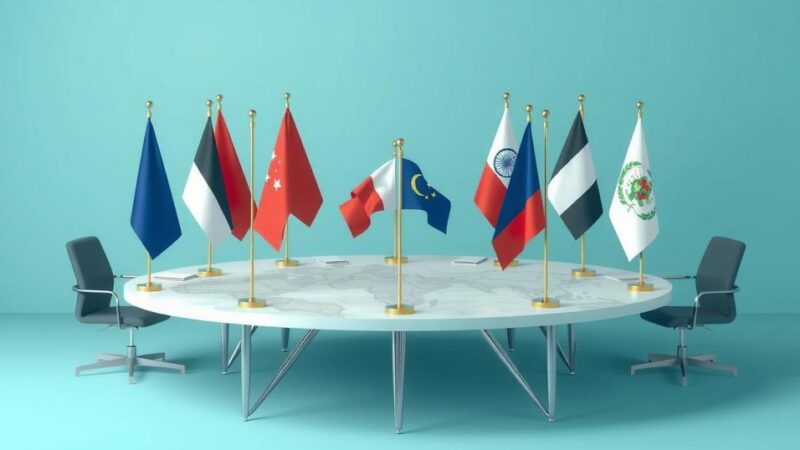South Sudan’s NCA has imposed a 30-day ban on social media, purportedly in response to the Wad Madani massacre. This directive severely restricts communication, curtailing citizens’ rights to free expression and access to information, thereby undermining democracy. The shutdown is criticized as an overreach that worsens public frustration rather than fostering dialogue and accountability.
The directive by the National Communication Authorities (NCA) of South Sudan, announced on January 22nd, 2025, mandates a total and indefinite shutdown of social media platforms for a minimum of 30 days. Presented as a response to national grief following the massacre of South Sudanese nationals in Sudan, this measure raises significant concerns about the erosion of civil liberties and the citizens’ right to free expression.
The stoppage of social media curtails essential communication and public dialogue. Rather than fostering open discussions during this period of mourning, the shutdown inhibits citizens from addressing the various issues they face and from sharing critical information regarding national concerns. This governmental overreach presents an alarming threat to constitutional rights, especially freedom of speech and access to information.
This measure diverts from the essential principles of democracy and transparency, leaving citizens uninformed about vital local and global events. The inability to express oneself publicly indicates a serious commitment issue from the government towards protecting human rights and facilitating an inclusive political process. Such restrictions during national crises contradict the foundation of a democratic society.
Although the tragedy in Wad Madani is undeniable, the government’s reaction could pose longer-term repercussions for civil liberties. Citizens should not sacrifice their rights in the name of national safety. Upholding the tenets of democracy, transparency, and individual freedoms is vital for maintaining stability in South Sudan.
Open communication is crucial during crises for any democratic society. Social media platforms, which allowed the South Sudanese population to express their grief and seek justice, are now silenced. This decision directly impacts not only individuals but also civil society and press organizations that depend on these channels to report injustices and advocate for change.
The directive undermines Article 24 of South Sudan’s Transitional Constitution, which explicitly protects freedom of expression. Blocking social media violates this provision and prevents citizens from exercising their right to seek and disseminate information. Moreover, South Sudan’s commitments to international conventions on human rights further compound the illegality of this action.
Despite the necessity for response to tragedy, implementing a social media shutdown is damaging and disproportionate. The government’s choice to suppress communication only exacerbates the existing frustration among citizens. An effective response would entail transparent dialogue surrounding the investigation for justice.
Instead of promoting openness, the government’s decision fosters secrecy and speculative narratives. Immediate reinstatement of social media platforms is essential for citizens to communicate freely and demand accountability. The government’s legitimacy relies on its respect for citizens’ rights, rather than on suppressing their voices.
The events in Wad Madani necessitate accountability, not additional restrictions. As South Sudan moves forward, it is paramount that the path emphasizes the principles of justice, transparency, and respect for civil rights. Upholding these values is essential for healing the aftermath of the tragedy and preserving the integrity of democracy.
The article addresses the recent directive issued by South Sudan’s National Communication Authorities, which imposes a complete shutdown of social media platforms as a response to a national tragedy. This situation raises crucial concerns about the infringement of civil liberties and individual rights in a country where open communication is essential for democracy.
The government’s sweeping ban on social media in South Sudan highlights a troubling deterioration of democratic principles and human rights. This action not only stifles free expression and communication but also violates constitutional and international laws. A more constructive approach should focus on transparency and accountability, which are vital for healing and preserving democracy in the nation.
Original Source: www.radiotamazuj.org






